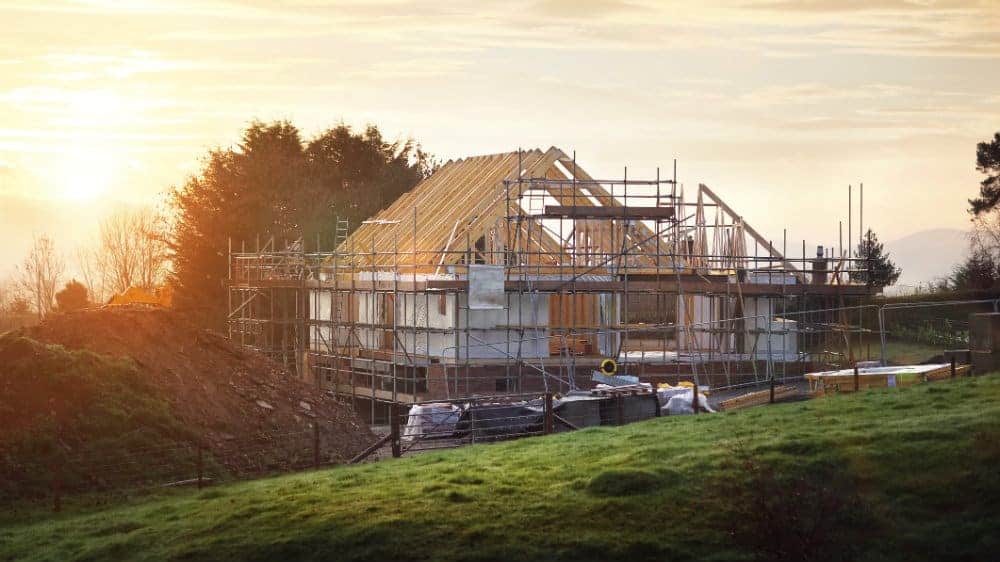FTSE 100 constituents Barratt, Berkeley, Taylor Wimpey and Persimmon have seen their share prices plummet in 2022.
So, why are housebuilders suffering this year? Let’s take a look.
[top_pitch]
How have FTSE 100-listed housebuilders fared this year?
Major housebuilders listed in the FTSE 100 share index include Barratt Developments, Berkeley Group Holdings, Persimmon and Taylor Wimpey. All four have seen their share prices tank in 2022.
Barratt Developments has seen its share price fall 29.5% so far this year. This compares to a modest 3.8% gain in 2021. Meanwhile, Berkeley Group shares are down 21.76% since the year began. Last year, the developer’s share price fell 6.9%.
So far, 2022 has also been a year to forget, for Persimmon. Its share price has fallen 23.1% since the start of January. Last year, Persimmon’s share price fell 0.5%. On a similar note, Taylor Wimpey shares have suffered a 25.09% fall this year, following a 3.5% rise in 2021.
Why are housebuilder shares falling?
With falls in the region of 20%, housebuilders have certainly had a poor start to the year. To understand why, it’s important to understand the relationship between housebuilders and the government.
This is because the government can have a huge impact on the value of housebuilders and other companies involved in the property sector. For example, over the past few years, the government has supported policies to boost the number of home buyers.
From Help to Buy and shared ownership to the 95% mortgage guarantee scheme, all have led to an increase in the number of people able to purchase property. The same could be said for the temporary Stamp Duty holiday.
While such schemes can boost demand, critics often point to the fact that they do nothing to address the UK’s lack of supply. For this reason, such schemes are seen to boost house prices and little else.
That said, there’s no doubt that housebuilders welcome government subsidies with open arms. The Help to Buy scheme in particular, which is only applicable to new build properties, has been a golden goose for developers over the years. That’s because the scheme has been shown to substantially boost the price of new build properties.
So, given the relationship between housebuilders and the government, why have housebuilder shares suffered this year? Let’s take a look at three big reasons.
1. No new schemes have been announced
While existing government incentives to boost housing demand are still in effect, no new schemes have been announced this year. Compare this to the introduction of the Stamp Duty holiday in 2020, and the 95% mortgage guarantee scheme in 2021.
The lack of new schemes this year means housebuilders cannot rely on another market ‘prop’ to rescue prices from falling in future.
2. House prices may have peaked
House prices are at all-time highs, with the typical UK property costing £265,312 according to Nationwide. The building society reports that house prices are now £33,000 higher than a year ago, and rising at their fastest pace for over 17 years.
However, there are suggestions that this cannot continue for much longer. Almost every analyst in the property guessing game expects house price inflation to slow later this year. This is not surprising, given that interest rates are starting to rise and the Bank of England is cutting back on its quantitative easing programme.
While a boon for first-time buyers, lower house prices can impact the profits of housebuilders.
3. Concerns over cladding
Since the Grenfell Tower tragedy in 2017, the government has been under pressure to remove unsafe cladding from buildings across the UK. As a result, it’s been suggested that housebuilders should have to foot the estimated £4 billion cost.
According to Russ Mould, investment director at AJ Bell, this might be the fairest solution. He explains: “The housebuilders have benefited from generous incentives, such as Help to Buy and the mortgage guarantee scheme, in recent years. However, state support is not a one-way street and the sector needs to do its bit to look after its customers.”
[middle_pitch]
Are housebuilder shares a good buy right now?
While housebuilder shares have fallen this year, investing in the sector may not necessarily be a shrewd decision.
That’s because shares that have fallen could just as easily have further to fall. To learn more about the pitfalls of buying shares after they’ve fallen, see our article that explores the pitfalls of ‘buying the dip’.
Are you looking to invest? Whether or not you’re eager to invest in the property sector, if you’re looking to buy shares do take a look at The Motley Fool’s top-rated share dealing accounts.
If you’re new to investing, then see our investing basics guide, which can help you avoid the most common mistakes.







